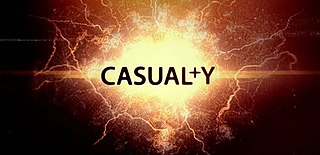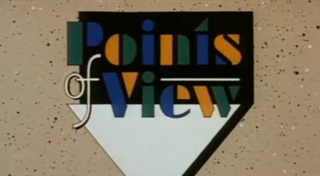Related Research Articles

Today, colloquially known as the Today programme, is BBC Radio 4's long-running morning news and current-affairs radio programme. Broadcast on Monday to Saturday from 6:00 am to 9:00 am, it is produced by BBC News and is the highest-rated programme on Radio 4 and one of the BBC's most popular programmes across its radio networks. In-depth political interviews and reports are interspersed with regular news bulletins, as well as Thought for the Day. It has been voted the most influential news programme in Britain in setting the political agenda, with an average weekly listening audience around 6 million.

Stephen Paul Lamacq, sometimes known by his nickname Lammo, is an English disc jockey, currently working with the BBC radio station BBC Radio 6 Music.

BBC Radio 3 is a British national radio station owned and operated by the BBC. It replaced the BBC Third Programme in 1967 and broadcasts classical music and opera, with jazz, world music, drama, culture and the arts also featuring. The station describes itself as "the world's most significant commissioner of new music", Through its New Generation Artists scheme promotes young musicians of all nationalities. The station broadcasts the BBC Proms concerts, live and in full, each summer in addition to performances by the BBC Orchestras and Singers. There are regular productions of both classic plays and newly commissioned drama.

The News Quiz is a British topical panel game broadcast on BBC Radio 4, first broadcast in 1977. The show, created by John Lloyd from an idea by Nicholas Parsons, has seen several hosts, including Barry Norman, Barry Took, Simon Hoggart, Sandi Toksvig, and Miles Jupp. Andy Zaltzman was announced as the permanent host after series 103. The show involves four panellists, often comedians or journalists, who answer questions about events of the previous week, often leading to humorous and satirical exchanges. The show was adapted for television in 1981 and has also inspired other shows.

Noel Ernest Edmonds is an English television presenter, radio DJ, writer, producer, and businessman. Edmonds first became known as a disc jockey on Radio Luxembourg before moving to BBC Radio 1 in the UK, presenting the breakfast show for almost 5 years. He has presented various radio shows and light-entertainment television programmes for 50 years, originally working for the BBC, later Sky UK and Channel 4.
Start the Week is a discussion programme broadcast on BBC Radio 4 which began in April 1970. The current presenter is Tom Sutcliffe. The previous regular presenters were Richard Baker, Russell Harty, Melvyn Bragg, Jeremy Paxman and Andrew Marr
That's Life! was a TV consumer affairs programme on the BBC, at its height regularly reaching audiences of fifteen to twenty million, and receiving 10–15,000 letters a week. The series was broadcast on BBC1 for 21 years, from 26 May 1973 until 19 June 1994.

Casualty (stylised as CASUAL+Y) is a British medical drama series that airs weekly on BBC One. Created by Jeremy Brock and Paul Unwin, it was first broadcast in the United Kingdom on BBC One on 6 September 1986. The original producer was Geraint Morris. Having been broadcast weekly since 1986, Casualty is the longest-running primetime medical drama series in the world.
Mrs Dale's Diary was the first significant BBC radio serial drama. It was first broadcast on 5 January 1948 on the BBC Light Programme, later BBC Radio 2; it ran until 25 April 1969. A new episode was broadcast each weekday afternoon, with a repeat the following morning. A few days after the final episode, a new serial drama, Waggoners' Walk, took over the time slot.

Points of View is a long-running British television series broadcast on BBC One. It started in 1961 and features the letters of viewers offering praise, criticism and observations on BBC television programmes of recent weeks.
Pick of the Pops is a long-running BBC Radio programme; it was based originally on the Top 20 from the UK Singles Chart and was first broadcast on the BBC Light Programme on 4 October 1955. It transferred to BBC Radio 1 from 1967 to 1972. The show was revived for six years in 1989 and its current production run started on BBC Radio 2 in 1997. It is currently hosted by Steve Wright.
ITV News is the branding of news programmes on the British news television channel of ITV. ITV has a long tradition of television news. Independent Television News (ITN) was founded to provide news bulletins for the network in 1955, and has since continued to produce all news programmes on ITV. The channel's news coverage has won awards from the Royal Television Society, Emmy Awards and BAFTAs. Between 2004 and 2008, the ITV Evening News held the title of "RTS News Programme of the Year". The flagship ITV News at Ten has won numerous BAFTA awards, and also being named "RTS News Programme of the Year" in 2011, 2015, 2021 and 2022.
In Town Tonight is a BBC radio programme that was broadcast on Saturday evening from 1933 to 1960. It was an early example of a chat show, originally presented by Eric Maschwitz.

606 is a weekend early evening football phone-in programme, broadcast on BBC Radio 5 Live throughout the British football season. It covers topics relating to the current affairs of football in the United Kingdom.
Kaleidoscope was a BBC Radio 4 arts programme which ran for 25 years from 1973. It ended with the major schedule changes that occurred in April 1998, when it was replaced by Front Row.
Top of the Form was a BBC radio and television quiz show for teams from secondary schools in the United Kingdom which ran for 38 years, from 1948 to 1986.

BBC Radio 2 is a British national radio station owned and operated by the BBC. It is the most popular station in the United Kingdom with over 14 million weekly listeners. Since launching in 1967, the station broadcasts a wide range of content. The 'About Radio 2' BBC webpage says: "With a repertoire covering more than 40 years, Radio 2 plays the widest selection of music on the radio—from classic and mainstream pop to a specialist portfolio including classical, country, folk, jazz, soul, rock 'n' roll, gospel and blues."
The twenty-seventh series of Casualty began airing on BBC One on 18 August 2012 with an episode featuring a disaster at a music festival. Filming series 26 was completed in April 2012 and filming series 27 began a week later. The first episode was in the normal format – a 50-minute episode. This season is 44 episodes, increasing from 42 for the previous one. Viewing figures for the first episode were 5.19 million viewers, continuing to be one of the most watched programmes of a Saturday night.
A timeline of notable events relating to BBC Radio 4, a British national radio station which began broadcasting in September 1967.
This is a timeline of BBC Radio London, a BBC Local Radio station broadcasting to London.
References
- ↑ Stapley, Nigel (1 June 2007). "Stop The Week". Transdiffusion. Retrieved 21 October 2023.